Breast Reconstruction in Croatia
Search and Compare the Best Clinics and Doctors at the Lowest Prices for Breast Reconstruction in Croatia

Find the best clinics for Breast Reconstruction in Croatia
With Medijump you can browse 3 facilities offering Breast Reconstruction procedures in Croatia. The cheapest price available is $4,404 in Zagreb. And for the cheapest price globally, prices start from $477 in India.
Breast Reconstruction in Zagreb
Price: $ 4,404
India offers the best prices Worldwide
Price: $ 477
Arcadia Clinic For Plastic and Aesthetic Surgery, located in Ul grada Vukovara A, Zagreb, Croatia offers patients Breast Reconstruction procedures among its total of 32 available procedures, across 3 different specialties. The cost of a Breast Reconstruction procedure starts from $4,404, whilst the national average price is approximately $4,404. There are many specialists available at the Clinic, with 10 in total, and they are accredited by CSPRAS - Croatian Society of Plastic, Reconstructive and Aesthetic Surgery
Cosmetic Plastic Surgery - Facial Plastic Surgeon, can be found in Trg Sv Stjepana, Hvar, Croatia and offers its patients Breast Reconstruction procedures as well as 39 other procedures, across 3 different procedure categories. At present, there is no pricing information for Breast Reconstruction procedures at Cosmetic Plastic Surgery - Facial Plastic Surgeon. The pricing information is quite specialised, so it's only available on request, and the average price is around $4,404. Currently, there's no information available about the doctors at the Hospital, and Cosmetic Plastic Surgery - Facial Plastic Surgeon is accredited by just one known accreditations institute, CSPRAS - Croatian Society of Plastic, Reconstructive and Aesthetic Surgery
Cosmetic Surgery Dr. Žgaljardić, located in Ul grada Vukovara A, Zagreb, Croatia offers patients Breast Reconstruction procedures among its total of 51 available procedures, across 7 different specialties. Currently, there's no pricing information for Breast Reconstruction procedures at Cosmetic Surgery Dr. Žgaljardić, as all prices are available on request only, whilst the national average price is approximately $4,404. All procedures and treatments are undertaken by the lead specialist at the Hospital, and they are not accredited by any recognized accreditations institutes
- Home
- Croatia
Compare Before & After Photos of _procedure_photos.phpBreast Reconstruction
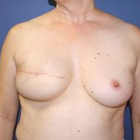
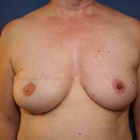
Front view
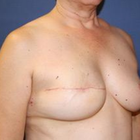
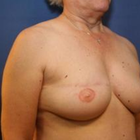
Half-side view
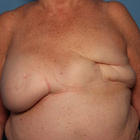
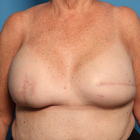
Front view
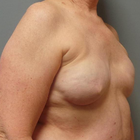
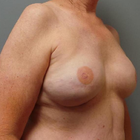
Half-side view
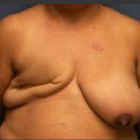
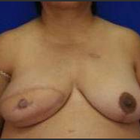
Front view
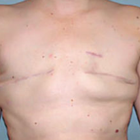
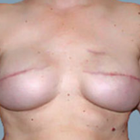
Front view
WHY US?
At Medijump, we're making medical easy. You can search, compare, discuss, and book your medical all in one place. We open the door to the best medical providers worldwide, saving you time and energy along the way, and it's all for FREE, no hidden fees, and no price markups guaranteed. So what are you waiting for?

Free

Best Price

Widest Selection

Risk-Free
What you need to know about Breast Reconstruction in Croatia
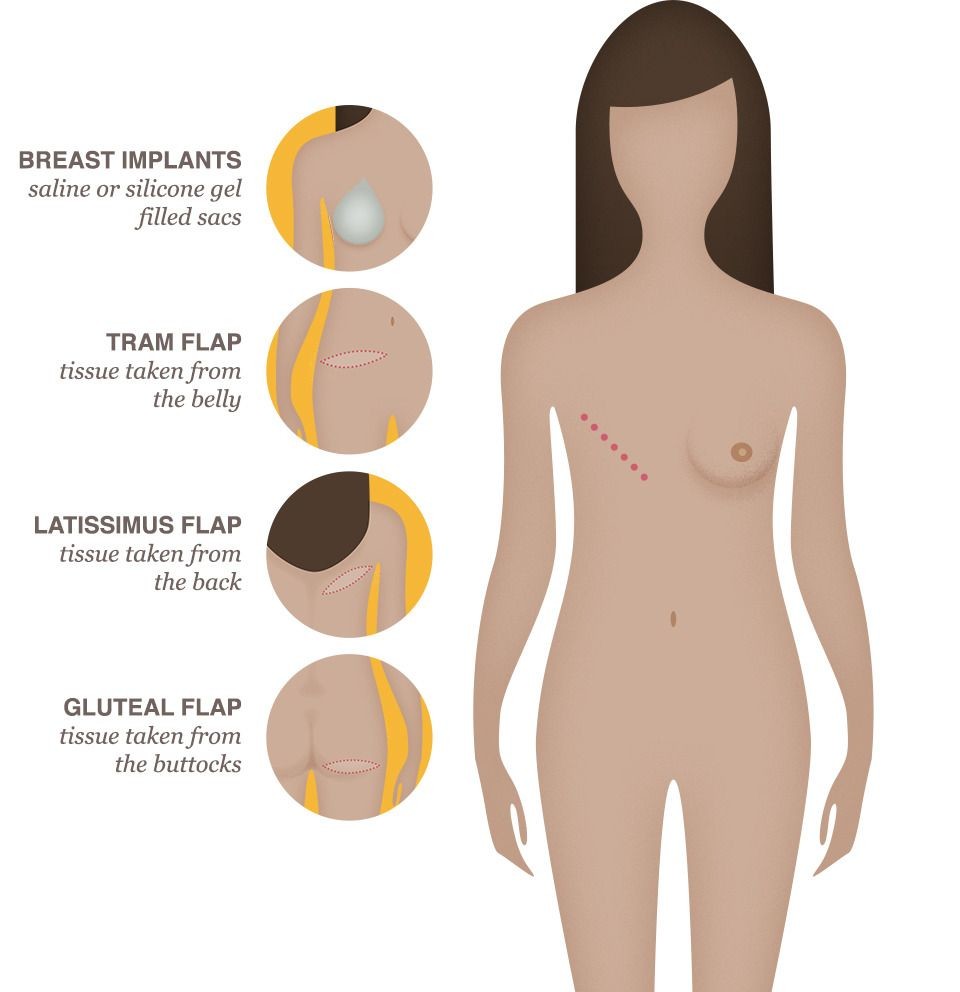
Breast reconstruction is a significant surgery undertaken to rejuvenate the physical form of a woman's chest after losing one or both breasts to cancer or another disease. In Croatia, medical centres are well-equipped with top-tier talent in plastic surgery to facilitate this intricate procedure. Every woman's journey is different, and her treatment plan is personalized, considering her unique circumstances and needs.
It's heartening to know that breast cancer treatments like chemotherapy or radiation therapy aren't impeded by reconstruction. Moreover, this surgery doesn't spike the risk of cancer coming back. Undeniably, breast reconstruction is a major surgery with inherent risks, including chances of infection, complications with wound healing, and potential dilemmas related to implants.
What is the cost of Breast Reconstruction in Croatia?
Undergoing surgery like Breast Reconstruction brings along a financial commitment. The expense varies extensively, depending on many factors like the complexity of the procedure, the medical professional performing the surgery, the hospital's facility, and the region, amongst others. Generally, the cost might range between $15,000 to $50,000, including multiple surgeries or intricate techniques within this estimate.
Thankfully, in many cases, insurance plans cover such surgical procedures, especially given mandates like the Women's Health and Cancer Rights Act of 1998 in the U.S. Still, out-of-pocket expenses associated with co-payment or deductibles can add up. It's recommended to navigate these aspects with your insurance provider and your chosen healthcare facility in Croatia.
What does a Breast Reconstruction Procedure Involve?
Breast reconstruction generally happens in stages, starting with the most complex first, which may either occur at the same time as the mastectomy or later, based on the individual’s specific health conditions or treatment plan.
Two main techniques are employed in breast reconstruction. One is the use of an implant, saline, or silicone to recreate the breast shape. Two, autologous or flap reconstruction where tissue from the patient’s body like the abdomen or thigh is relocated to recreate the breast shape. The method selected is dependent on individual factors like the patient’s health, personal choice, cancer type, and stage.
After the primary surgery and post an adequate healing period, the surgeon performs a second procedure to recreate the nipple and areola. Later, to give it a natural look, the nipple-areola complex is tattooed. Remember that although it is a common procedure, complications might arise involving reaction to anaesthesia, bleeding, infection, poor healing or the need for further interventions.
How Long Should I Stay in Croatia for a Breast Reconstruction Procedure?
Post-breast reconstruction surgery, patients typically stay in the hospital for two to five days. However, if the reconstruction was done immediately after the mastectomy, the stay could extend from three to six days.
Overall, a patient should expect to remain in Croatia for approximately two weeks post-surgery. This allows enough time for necessary follow-ups and to address any complications, if they arise. As with any major surgical procedure, do not hasten the healing process.
What's the Recovery Time for Breast Reconstruction Procedures in Croatia?
The recovery timeframe for breast reconstruction procedures in Croatia varies from patient to patient. Generally, for implant-based procedures, patients may take about four to six weeks to recuperate before they return to normal routines. For more complex autologous techniques, particularly those using abdominal tissue, patients might require six to eight weeks for recovery.
Recovering patients need to temper their activities during this period. Avoid lifting heavy objects and defer strenuous exercise until your physician gives a clear signal. Medical assistance should be promptly sought if any discomforting symptoms like chronic pain, redness or swelling surface.
What's the Success Rate of Breast Reconstruction Procedures in Croatia?
Medical success cannot just be measured in terms of complication-free postoperative progress or longevity of implants used in breast reconstruction. Patient satisfaction with their surgery, their psychological well-being following the operation, their perception of body image, and their quality of life post-surgery are equally important factors to consider. Studies indicate that between 85% to 90% of women who have undergone breast reconstruction are satisfied with the long-term results.
In Croatia, dedicated hospitals and healthcare facilities strive to offer high-quality treatment, ensuring the best possible surgical outcomes using progressive technology and experienced professionals. Still, everyone's response to surgery varies, and outcomes depend on factors such as overall health, age, body type, and compliance with surgical advice.
Are there Alternatives to Breast Reconstruction Procedures in Croatia?
Indeed, there are alternatives to breast reconstruction in Croatia. The journey of every woman is unique and how she chooses to deal with the loss of a breast, or both, is a highly personal decision. Alternatives include:
- Breast Prostheses or Forms: They are silicone forms that imitate the appearance and feel of natural breast tissue. They come in diverse sizes, shapes and colours to closely match the woman's skin tone.
- Flat Closure: In this method, the surgeons sew up the chest wound smoothly, without constructing a breast mound. This option appeals to women who choose not to have more surgeries or body implants.
- Opting not to undergo reconstruction at all, also termed as "going flat: This method exhibits the woman's choice to live comfortably with her new body shape without artificial substitutes or further surgeries. It is a fully personal decision deserving respect and support.
Each of these options has pros and cons, and the choice depends on the woman’s personal preference, health status, lifestyle, and perception of her body. Regardless of the choice, it’s important to regularly monitor breast health and engage in practices that promote overall wellness.
What Should You Expect Before and After the Breast Reconstruction Procedure?
Before the surgery, comprehensive discussions with the surgeon will take place to understand treatment objectives, outcomes, and possible complications. Preoperative tests, lifestyle modifications, and nutritional advice may form a part of the preparatory process.
Postoperative care is equally important: discomfort, swelling, and bruising are normal and subside over time. Pain management strategies will be provided to help you manage discomfort effectively. Your surgeon will provide personalised guidance on caring for your surgical site, usage of medications, and physical activities.
What sort of Aftercare is Required for Breast Reconstruction Procedures in Croatia?
The following points should be considered post-operation:
- Follow the instructions given by your doctor and take your medicines as and when prescribed.
- Consult a nutritionist for a diet plan. A healthy diet helps you recover faster.
- Do not wear a padded or underwire bra until allowed by your doctor.
- Use surgical bras in the early few days after the surgery.
- Avoid excessive unnecessary movement of your breasts.
- Do not lift heavy objects and children - it could stretch on your stitches.
- Change your bandage whenever it gets dirty. Germs can cause infection.
- Do not take a bath when the bandages are still intact. A wet bandage can also be the cause of infection.
- Abstain from sexual activity for at least 6 weeks.
- Take rest - give yourself time to recover.
How Do I Prevent Cancer from Recurring?
Preventing cancer recurrence largely revolves around a balanced, healthy lifestyle coupled with regular medical check-ups. Regular exercise, maintaining a healthy weight, and eating nutritiously can contribute to cancer prevention. Smoke cessation and limiting exposure to secondhand smoke are crucial for both prevention and postoperative recovery.
Regular breast self-examinations, as well as mammograms and follow-up visits, are critical for early detection of any recurrence. Stress management techniques like yoga, meditation, and spending time in nature can also play an essential role in overall health.
Your medical team in Croatia is there to support you, offering advice tailored to your individual health status and medical history. Remember, proactive health checks are key to maintaining overall health and preventing the recurrence of diseases like cancer.
What is the ideal time to have Breast Reconstruction surgery after a Mastectomy in Croatia?
The decision regarding when to have Breast Reconstruction following a Mastectomy in Croatia is largely based on the individual's health status, treatment plan, personal preferences, and discussions with the oncology team. Breast reconstruction can be done at the time of mastectomy (immediate reconstruction) or at a later date (delayed reconstruction). Immediate reconstruction might offer psychological benefits and less overall surgery since both procedures are done together. Yet, if additional treatments such as radiation therapy are required post-mastectomy, opting for delayed reconstruction could be advisable to avoid risks posed by radiation to the new construct.
Remember that deciding on the timing of breast reconstruction is a personal choice and should be made in consultation with your healthcare providers. They can provide specific guidance based on your health condition and treatment plan.
How Will Breast Reconstruction in Croatia Impact My Routine Mammograms and Breast Cancer Detection?
Breast reconstruction surgery may impact the way routine breast cancer screenings are conducted. After a mastectomy with or without reconstruction, women usually don't need routine screening mammograms on the treated side since all breast tissue has been removed. However, they would need routine mammograms for the untreated breasts.
If you've had reconstruction using your own body tissue, your surgeon or oncologist will guide you on whether or not you'll require mammograms on the reconstructed breast. Remember, mammograms can still be performed on reconstructed breasts, and self-breast exams should be a regular part of your health routine.
Whilst the information presented here has been accurately sourced and verified by a medical professional for its accuracy, it is still advised to consult with your doctor before pursuing a medical treatment at one of the listed medical providers
No Time?
Tell us what you're looking for and we'll reachout to the top clinics all at once
Enquire Now

Popular Procedures in Croatia
Prices Start From $497

Prices Start From $208

Prices Start From $834

Prices Start From $500

Prices Start From $93

Prices Start From $85

Recommended Medical Centers in Croatia for Breast Reconstruction

- Interpreter services
- Translation service
- Religious facilities
- Medical records transfer
- Medical travel insurance
- Health insurance coordination
- TV in the room
- Safe in the room
- Phone in the room
- Private rooms for patients available

- Interpreter services
- Translation service
- Religious facilities
- Medical records transfer
- Medical travel insurance
- Health insurance coordination
- TV in the room
- Safe in the room
- Phone in the room
- Private rooms for patients available

- Interpreter services
- Translation service
- Religious facilities
- Medical records transfer
- Medical travel insurance
- Health insurance coordination
- TV in the room
- Safe in the room
- Phone in the room
- Private rooms for patients available

- Interpreter services
- Translation service
- Religious facilities
- Medical records transfer
- Medical travel insurance
- Health insurance coordination
- TV in the room
- Safe in the room
- Phone in the room
- Private rooms for patients available

- Interpreter services
- Translation service
- Religious facilities
- Medical records transfer
- Medical travel insurance
- Health insurance coordination
- TV in the room
- Safe in the room
- Phone in the room
- Private rooms for patients available

- Interpreter services
- Translation service
- Religious facilities
- Medical records transfer
- Medical travel insurance
- Health insurance coordination
- TV in the room
- Safe in the room
- Phone in the room
- Private rooms for patients available

- Interpreter services
- Translation service
- Religious facilities
- Medical records transfer
- Medical travel insurance
- Health insurance coordination
- TV in the room
- Safe in the room
- Phone in the room
- Private rooms for patients available

- Interpreter services
- Translation service
- Religious facilities
- Medical records transfer
- Medical travel insurance
- Health insurance coordination
- TV in the room
- Safe in the room
- Phone in the room
- Private rooms for patients available

- Interpreter services
- Translation service
- Religious facilities
- Medical records transfer
- Medical travel insurance
- Health insurance coordination
- TV in the room
- Safe in the room
- Phone in the room
- Private rooms for patients available

- Interpreter services
- Translation service
- Religious facilities
- Medical records transfer
- Medical travel insurance
- Health insurance coordination
- TV in the room
- Safe in the room
- Phone in the room
- Private rooms for patients available
Breast Reconstruction in and around Croatia
About Croatia
Despite its relatively small size, Croatia presents a striking geographical diversity. It undoubtedly has a unique charm for those indulging in fantasies of an idyllic beach holiday. Being home to a vast stretch of seafront that spans thousands of miles and an intriguing archipelago with hundreds of islands, Croatia upholds a significant appeal for lovers of sun, sand, and surf.
Beyond its appealing coastlines, Croatia encompasses much more in its terrains. The expanse of the country is dotted with rugged, dramatic mountains that serve as the perfect backdrop to ancient towns that are enclosed within historical walls. The country is rich in untouched national parks that are truly a paradise for nature enthusiasts.
You also get a glimpse of regal history through majestic castles that mark the Croatian landscape. The icing on the cake is its fantastic cuisine that adds a flavorful dimension to one's experiences. Last but not least, the impressive Roman ruins scattered across the country are a testament to its astonishing historical heritage, enticing history buffs worldwide to explore Croatia.
Although Croatia is a newcomer to the medical tourism sector, the demand for medical services in the country by foreign patients is increasing. Its strong growth is largely driven by the high cost of private care and long waiting times in public healthcare in countries such as the UK and the US. Croatia is known to have affordable, top-quality treatments performed by highly qualified medical professionals. Also, medical centers in the country have modern equipment, friendly staff, and exceptional services.
Popular Parts of Croatia
Zagreb, the bustling capital of Croatia, is a vibrant city that boasts a blend of verdant parks, unconventional art galleries, and enticing museums. Even though the city pulsates with modern energy, its scenery stands distinguished by an array of neo-baroque and art deco buildings that impart a unique architectural charm.
The vibrant city of Zagreb brims with an eclectic mix of attractions that can appeal to a wide range of tastes and interests. One such unique point of interest is the Museum of Broken Relationships. This peculiar museum offers an offbeat exploration into the vestiges of love that has ended, providing a distinctively intimate glimpse into personal stories of heartbreak.
Another notable site that significantly attracts visitors is the serene Mirogoj. Not just an ordinary cemetery, Mirogoj stands out as one of the finest architectural gems in Croatia, offering a peaceful retreat within the lively cityscape. Balancing modern dynamics with a deep-rooted cultural heritage, Zagreb indeed offers engaging facets for every type of traveler.
The Croatian Museum of Naïve Art, standing as a symbol of the country’s rich artistic history, is a must-visit for art aficionados. Further, the bustling Dolac Market is the city's epicentre for fresh produce where locals and tourists alike converge. Rounding off the list is the Funicular Railway, another essential experience that offers a charming way to take in Zagreb's panoramic views.
Those who want to enjoy Croatian’s famous beaches and explore ancient monuments should visit Dubrovnik. Known as the “Pearl of the Adriatic,” this city has a giant walled Old Town, stunning mountains, and idyllic beaches.
Weather and Climate in Croatia
Croatia's summer season, extending from July to August, is characterized by lovely warm weather and dry conditions, with a generous sprinkling of sunshine across most days. Transition seasons such as spring (April to June) and autumn (September to October) also offer a fairly warm and agreeable climate, making them pleasant times to visit. However, the spring season can sometimes bring increased rainfall.
On the other hand, winters in Croatia, particularly in January, can dip into colder temperatures. This chill factor is more pronounced in areas of higher elevations, where it's common to witness snowy landscapes. Each season in Croatia brings with it a distinctive climate and charm, shaping the country's scenic beauty in different ways throughout the year.
As the calendar flips over to the cooler months, the Croatian landscape transitions from sun-kissed beaches to frost-laden terrains, especially in the elevated regions of the country. Here, it is not unusual to see snowfall, adding a whole new dimension to Croatia's captivating beauty. Still, regardless of the weather, Croatia retains its charm, offering visitors an array of unique experiences all year round. The country's seasonal moods only add to its diverse appeal, ensuring that there's always something beautiful to see or experience, making Croatia a truly year-round destination.
Getting around in Croatia
Zagreb Airport claims the title of being the largest and most frequented international airport in Croatia. This bustling transport hub is where the majority of global explorers set foot in the country.
The airport operates a host of both regular and seasonal air services that connect Zagreb to numerous metropolises worldwide. Notable among these are Paris, Toronto, London, Barcelona, Dubai, and Seoul, further emphasising Zagreb Airport's significance in global travel.
There are good transport options in Croatia. Domestic flights are the fastest option to get around, though they can be a bit expensive. The bus network is run by a lot of different companies and is generally comfortable.
The Croatian Railways has a reasonably efficient service and is cheaper than buses, but they are slower and less frequent. There is a large network of catamarans and car ferries. In major cities, the main form of transport is buses. Taxis are available and are expensive.
Tourist Visas in Croatia
EU nationals, Canadian, Australian, British, and US nationals do not need to apply for a visa to stay in Croatia for up to 90 days. While Croatia is not yet a member of the Schengen area, holders of Schengen visas to enter the country without having to apply for an additional visa.
Tips for applying for a tourist visa to Croatia:
- Plan ahead. It is important to apply for your visa well in advance of your travel date, as the processing time can vary depending on the country where you are applying.
- Be complete and accurate. Make sure to complete the visa application form accurately and completely, and provide all of the required supporting documents.
- Pay the visa application fee. The visa application fee varies depending on your nationality and the type of visa you are applying for.
- Attend a visa interview, if required. Some nationalities may be required to attend a visa interview at the Croatian embassy or consulate in their home country.
Additional Information
- Local Currency: Croatian kuna (HRK) is the official currency in Croatia. 1 USD is equivalent to 7.08 HRK.
- Money & Payments: ATMs are widespread. Credit cards, including MasterCard and Visa, are widely accepted around the country. Tipping in Croatia is expected, although it is not obligatory. It is standard to leave a 10% to 15% gratuity in restaurants. Taxi drivers usually do not expect tips, but it is common to round to the nearest kuna.
- Local Language: The official language is Croatian. Serbian, Hungarian, Slovenian, and Italian are spoken by ethnic minorities living in the country. In tourist areas, people speak good English, as well as some German and Italian.
- Local Culture and Religion: More than 87% of Croatia’s population adhere to Roman Catholic, while Eastern Orthodox Serbs are followed by around 4.4% of the population. There are small groups of Muslims, Jews, and Protestants as well.
- Public holidays: Some of the most important public holidays in Croatia are Christmas, Epiphany, Easter Monday, Labor Day, Saint Stephen’s Day, Corpus Christi, All Saints’ Day, and Assumption Day.
Popular Searches
- Plastic Surgery in Thailand
- Dental Implants in Thailand
- Hair Transplant in Thailand
- Breast Augmentation Thailand
- Gastric Sleeve in Thailand
- Gender Reassignment Surgery in Thailand
- Laser Hair Removal in Bangkok
- Botox in Bangkok
- Dermatology in Bangkok
- Breast Augmentation in Bangkok
- Coolsculpting in Bangkok
- Veneers in Turkey
- Hair Transplant in Turkey
- Rhinoplasty in Turkey
- Stem Cell Therapy in Mexico
- Rhinoplasty in Mexico
- Liposuction in Mexico
- Coolsculpting in Tijuana
- Rhinoplasty in Korea
- Scar Removal in Korea
- Gastric Sleeve in Turkey
- Bone Marrow Transplant in India
- Invisalign in Malaysia
- Plastic Surgery in the Dominican Republic
- Tummy Tuck in the Dominican Republic
- Plastic and Cosmetic Surgery in Poland
- Rhinoplasty in Poland
- Hair Implant in Poland
- Dental Implants in Poland
- IVF in Turkey


